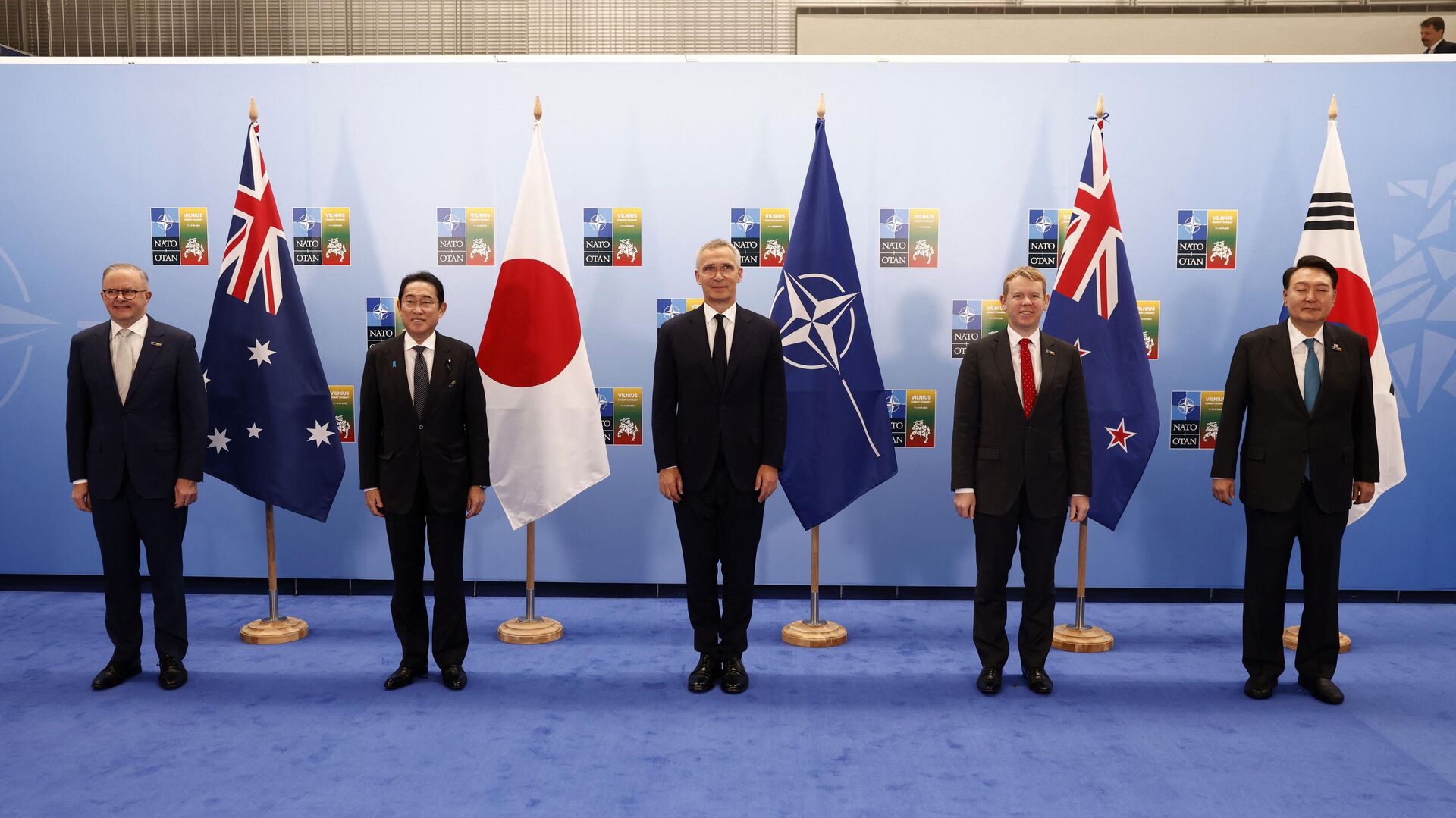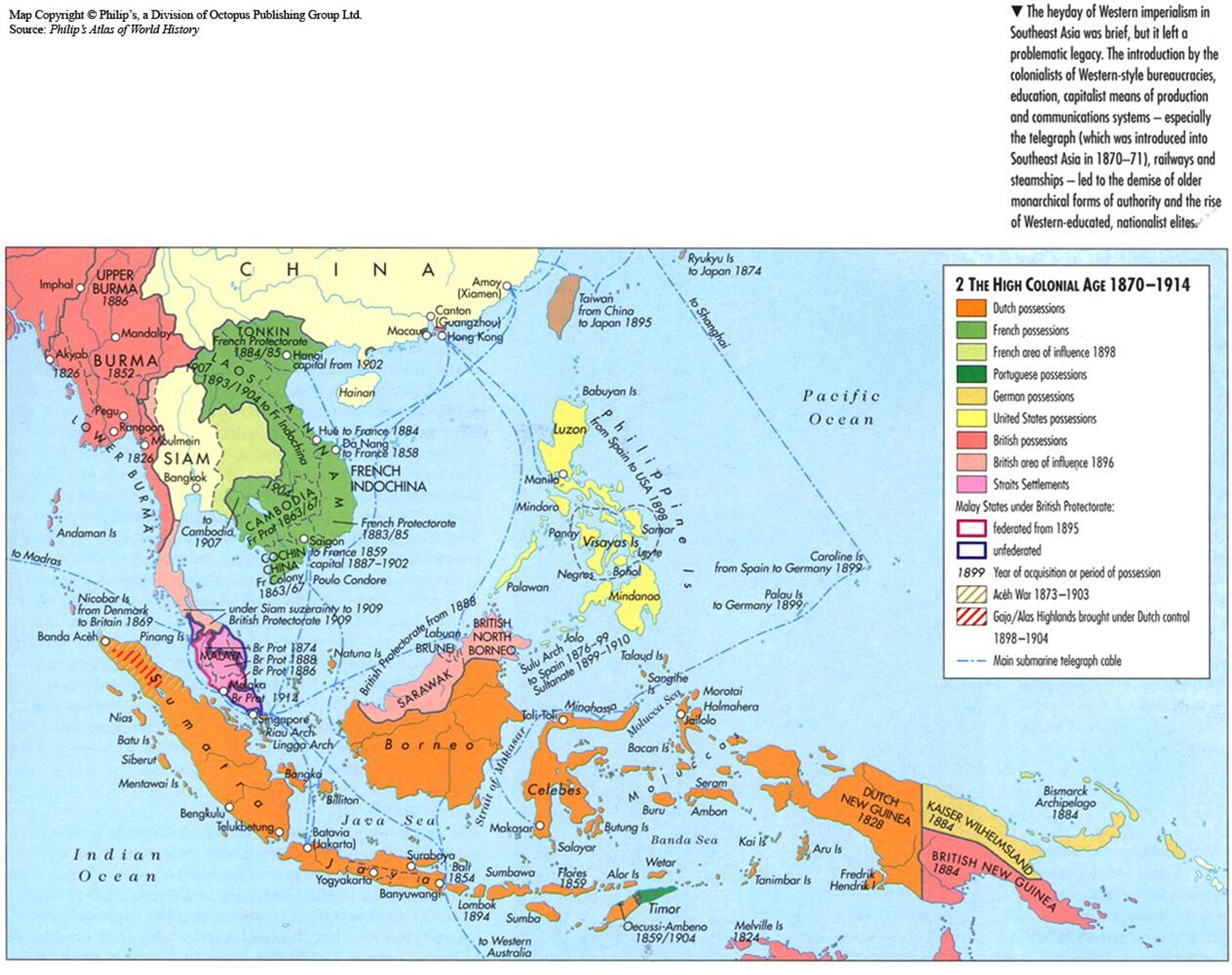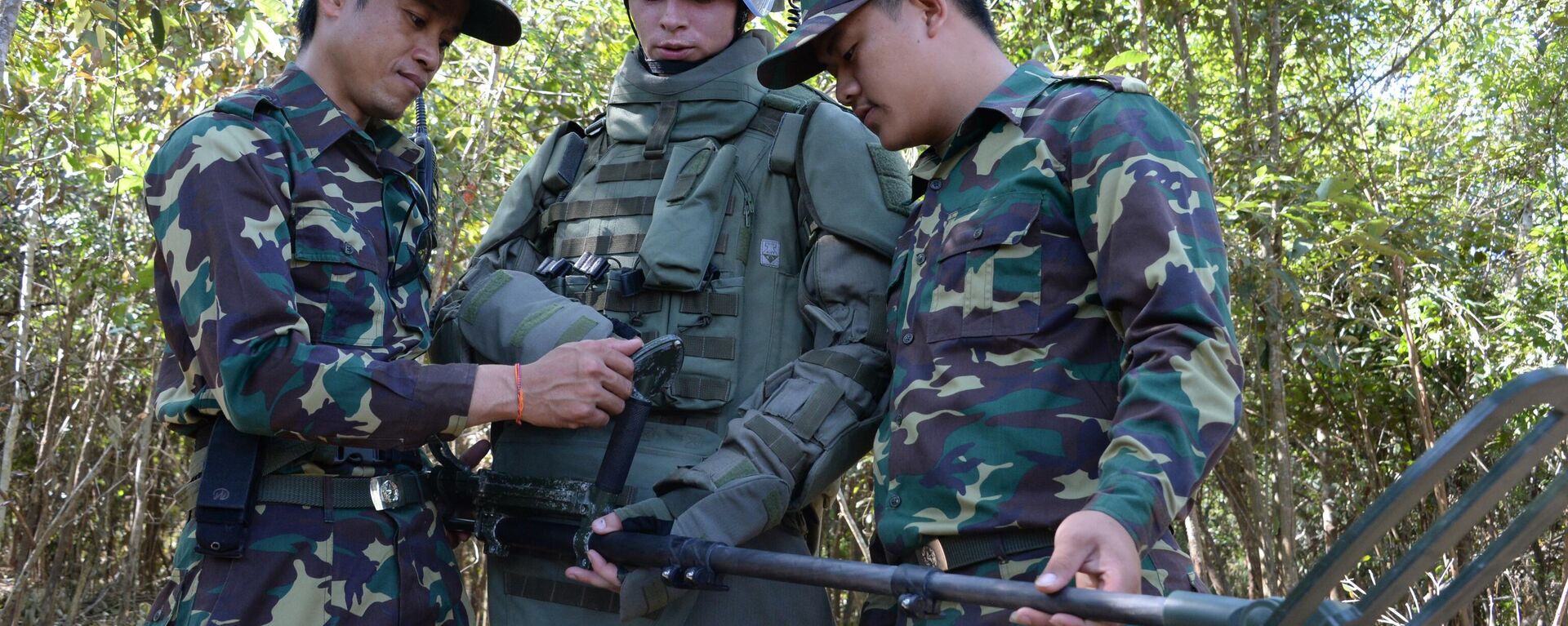Asia Remembers NATO’s Colonial Past, Doesn’t Want Bloc Powers Back in Region

© AFP 2023 / ODD ANDERSEN
Subscribe
Russia’s president has posed the question of what the North Atlantic Treaty Organization is doing poking its nose into Asia in support of Washington’s zealous efforts to ‘contain’ China. Sputnik reached out to a leading Canadian scholar of international relations for his take on why NATO might not find itself particularly welcome in the region.
President Putin has pondered what possible justification NATO may have in joining the US in its ‘pivot to Asia’ strategy of trying to ‘contain’ China, given that the bloc literally has ‘Atlantic’ in its name.
“We see what’s happening around Russia and around China. We see attempts by the West to shift NATO’s activities to Asia, which clearly go beyond the scope of the charter goals of this organization. It’s called the North Atlantic bloc – what would it be doing in Asia? But no, they’re dragging themselves into Asia, provoking, escalating the situation, creating new military-political blocs of varying composition,” Putin said in a year-end press conference on Thursday.
Putin’s comments came in the wake of months of discussions by the Biden administration, NATO officials and major US allies in the Asia-Pacific related to the Western alliance’s growing presence in region, ostensibly to ‘counter’ China.
Washington has recently already sought to stand up several regional alliances in Asia, including the Quadrilateral Security Dialogue (or QUAD) with Australia, India and Japan, as well as the AUKUS security pact with Canberra and London – promising Australia access to nuclear submarine technology in exchange for base access.
As for NATO – the US-forged alliance set up in 1949 to counter the threat ostensibly posed by the Soviet Union and its allies (which disappeared in 1991 with the Warsaw Pact’s collapse and the USSR’s dissolution along with NATO’s pre-‘war on terror’ raison d’etre), its officials have offered a series of increasingly hostile comments vis-à-vis Beijing throughout the year.
In July, alliance chief Jens Stoltenberg said that although the People’s Republic of China was not officially a NATO “adversary,” it does challenge “the rules-based international order” (code for US-dominated world order), poses a “threat” to Taiwan, and has engaged in “a substantial military buildup” (still just 1/5 of NATO’s $1.26 trillion in defense spending in 2023. The alliance has also accused China of using its vast economic power and control of technologies and supply chains to create strategic dependencies.
Chinese officials and media blasted the alliance over its hostile rhetoric, with Xinhua accusing the Western bloc of “spreading its tentacles to the Asia-Pacific region with the express aim of containing China,” sending “jets and warships for military exercises in China’s surrounding waters,” and planning to set up a controversial liaison office in Japan. The latter idea at least has been shelved, for now. However, the alliance did ink a so-called ‘Individually Tailored Partnership Program’ with South Korea in July, touching on cyber defense, non-proliferation and counter-terrorism, as well as “practical cooperation to uphold and strengthen the rules-based international order.”
However, “just because Japan and South Korea and Australia are sort of suggesting that they wouldn’t mind having a NATO presence, it doesn’t mean that the rest of the states in the region want NATO there,” says Dr. Shaun Narine, a professor of international relations and political science at St. Thomas University in New Brunswick, Canada.
“When you look at how Southeast Asia has been responding overall to the question of growing antagonism between the United States and the West and China, the Southeast Asian countries do not want to choose between the US and China. They want a peaceful region. They want a region where business opportunities and economic opportunities are what drives regional interaction,” the professor told Sputnik.
“So while they have been more circumspect with the emergence of things like AUKUS and the whole QUAD idea, I haven't seen any indication that the Southeast Asian countries are open to the idea of NATO being present. The other thing about it is that NATO is a collection of Western powers. All of them, every single country that's ever been a colonial power in Asia is a member of NATO. And when you look at the history of colonialism, particularly in Southeast Asia, but also of course in China, you got this historical fact that all of these countries have the experience of being dominated and colonized by European powers,” Dr. Narine added.
The legacy of European colonialism has been a “major force” in defining the region’s sense of history and nationalism, in the professor’s estimation. Accordingly, many regional nations are “very reluctant to have the Western countries come back” in a military way.

The High Colonial Age 1870-1914
© Photo : Princeton Commons
On top of that is NATO’s record in relation to Global South countries, which the academic pointed out hasn’t exactly been stellar.
“Outside of Europe…NATO's activities have been in places like Afghanistan and Africa, and particularly its involvement in the Libya intervention in 2011. And when you look at what NATO did in Libya, there's nobody in Africa who's going to refer to NATO as a primarily defensive alliance. NATO is seen in Africa as being an example of Western aggression, Western destabilization in Africa. And in much of the Global South there's a similar kind of idea. You know, very few countries in the world have supported Russia's invasion of Ukraine. On the other hand, a lot of countries are at least somewhat sympathetic to the Russian argument that they were concerned about the expansion of NATO,” Narine said.
Global South countries have been “on the receiving end” of violence by Western powers “for centuries.” Accordingly, “they’re much more careful about how they deal with the question of military alliances, Western military alliances, expanding into their region,” the scholar summed up.


